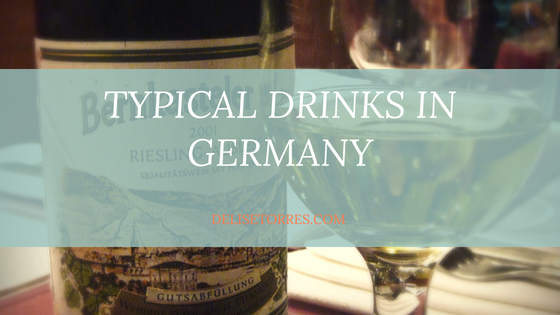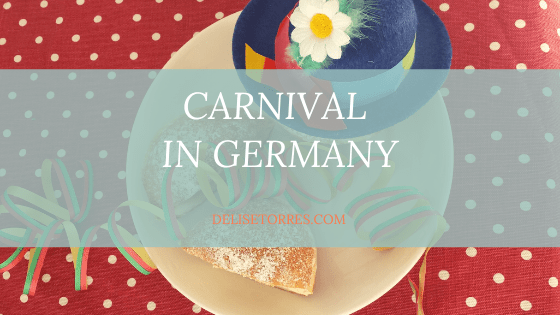This is part of my ongoing series on surviving in Germany based on my own experiences. Today we’ll talk about typical drinks in Germany.
Beer

Everybody knows Germany for it’s beer and Oktoberfest. Curiously, Germany is not the world’s top beer consumer. That title goes to the Czech Republic. Beer in Germany has to follow a strict purity law, which permits only water, hops, and malt as ingredients. To make interesting combinations, Germans simply mix the beer with other drinks, like coke, banana juice, grapefruit juice, etc.
One such combination is Radler – beer mixed with lemon-lime soda. It is a very popular summer-drink. The soda dilutes the alcohol and gives it an additional fizziness and sweetness. As these different combinations became trends, brewing companies followed suit and offered them already pre-mixed. You can also order them in nightclubs and bars.
Germans also drink seasonal beer, such as Kastanienbier (chestnut beer) in winter.
You can prepare all of these beer combinations not only with lager beer but with wheat beer as well. Try it out yourself. Get some German-style wheat beer and mix it with passion fruit nectar. My husband says you’ll love it (I wouldn’t know since I don’t like beer).
Wine

When Germans are not drinking beer, they’re drinking wine, and no celebration is complete without a sparkling wine or Sekt. Riesling is the most famous German wine variety.
Hugo is my favorite drink of the summer. It is a mix of Prosecco, Holunder syrup (a berry in Germany), lime juice, mint, and sparkling water. You can buy it pre-mixed and add some fresh mint or make it yourself. The more syrup you add, the sweeter the drink will be.
Fall begins with the production of new wine or Federweisser. This is fermented white grape juice sold right after harvest, with a lower percentage of alcohol than wine. Since it is at the beginning of the process, it is sweet and bubbly. It is sold refrigerated since it is still fermenting in the bottle, hence the cloudy appearance. If you wait too long to drink, it turns into sour vinegar. It pairs perfectly with Zwiebelkuchen (see my previous post). The white variety is the most common, but you can also find it red (Federroter).
When my husband was in the US, this was the drink he missed most since it is not sold there (at least not in Oklahoma, where we lived). So he decided to make his own. He pressed fresh grape juice and added yeast for the fermentation process. It was pretty close to the real thing.
You can only buy new wine for a limited time (during Sept and Oct,) so if you’re in Germany during those months, definitely try it out.

Christmas is the season for Glühwein or mulled wine. It is hot red or white wine (red is more popular), containing spices such as cloves, cinnamon, oranges, etc. You can buy it pre-bottled to heat up at home, but Germans consume it mostly at Christmas markets – outside and in the cold. You can also find hot Hugo at these markets.
Water

Although the quality of the potable water in Germany is very good, Germans prefer bottled water, especially when ordering in a restaurant or cafe. Public drinking fountains don’t even exist.
Bottled water is most commonly carbonated mineral water, so it has a slightly salty taste. When you order, you need to specify what type of water you want – with or without gas (stilles Wasser). Sometimes the waiter asks you which type you want, but mostly they assume you want the carbonated type.
The cool thing about this type of water is that Germans mix it with fruit juices to make a type of soda. The water dilutes the juice, reducing the amount of sugar, and adds fizziness. This is called a Schorle, and the most popular by far is Apfelschorle (water mixed with apple juice). You can find these already pre-mixed, sold in supermarkets and fast-food places.
Water can also be mixed with wine to create a Weinschorle. They sell this mostly in festivals, as a cheap way to drink wine and not get too drunk.
Coffee

As I wrote above, Germany is not the world’s top beer consumer. That’s because coffee is the country’s top beverage. And of course, it is an integral part of the coffee and cake hour on Sundays. No family reunion is complete without these two things. And if you’re like me and don’t drink coffee, you’ll have to constantly explain yourself to other people and ask for some tea instead.
Did I miss anything? What is your favorite German drink?










